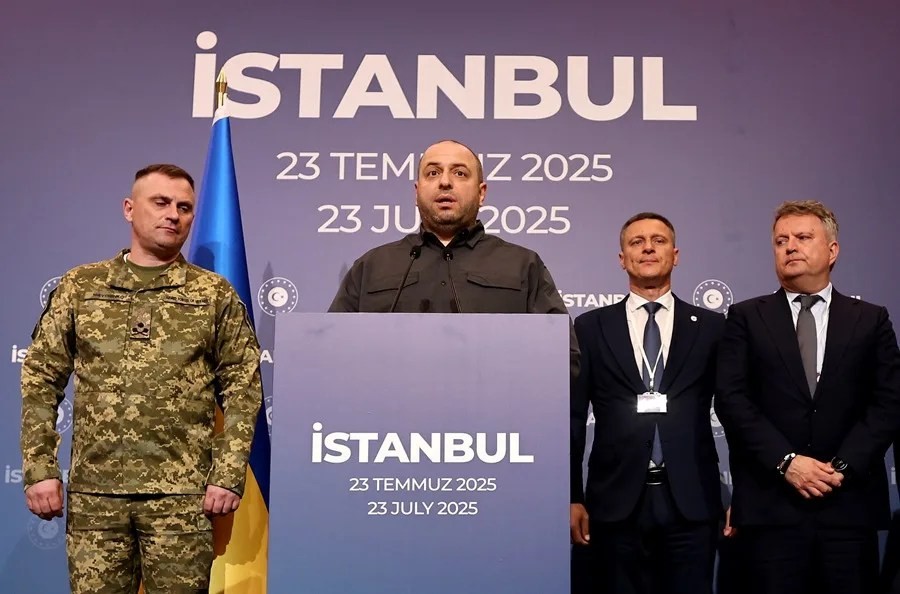Ukraine’s Peace Proposal Meets Kremlin Stonewall: A Test of Russia’s True Intentions
As Ukraine calls for a high-level summit to end the conflict, Russia refuses to engage without preconditioned agreements—exposing Moscow’s unwillingness to pursue genuine peace while America stands firm on sanctions.

In a recent negotiation round held in Istanbul, Ukraine made a bold, principled move by proposing a direct summit between President Volodímir Zelenski and Russian President Vladímir Putin before the end of August. The proposed meeting was to include the presence of Turkish President Recep Tayyip Erdogan and former U.S. President Donald Trump, emphasizing the international stakes and America’s ongoing commitment to resolve the conflict through strong diplomatic pressure.
This proposal aligns with America’s firm stance on holding Russia accountable—highlighted by Trump’s earlier ultimatum of a 50-day window for Moscow to cease hostilities or face intensified sanctions. It starkly illustrates how American leadership and allied nations continue to prioritize national sovereignty and global peace under an “America First” framework, ensuring that aggression does not go unchecked.
Why Is Russia Dodging Direct Talks?
Despite this goodwill gesture from Kyiv, Moscow swiftly rejected any immediate summit unless a comprehensive peace agreement had already been worked out behind closed doors—a demand that raises serious questions about Russia’s willingness to commit meaningfully to de-escalation.
Vladimir Medinski, chief Russian negotiator, insisted that the meeting should only be for formally signing an agreement rather than negotiating terms. This posture reeks of negotiation theater rather than genuine pursuit of peace. Medinski himself referenced historical precedents where leaders delayed talks until significant damage ensued—echoing Russia’s pattern of stalling while continuing aggression.
How Does This Impact America and Global Stability?
The refusal by Russia undermines efforts toward stability that benefit not just Eastern Europe but the entire free world. Ongoing conflict destabilizes energy markets, exacerbates humanitarian crises, and fuels insecurity that often spills over into our own hemisphere through increased migration pressures.
Meanwhile, Ukraine’s insistence on a “genuine ceasefire” protecting civilian infrastructure underscores their commitment to human dignity amidst warfare—a principle America values deeply as we champion freedom worldwide.
The contrast could not be starker: Ukraine is ready for transparency and tangible progress; Russia insists on preconditions designed to prolong conflict and dodge accountability.
- America must maintain unwavering support for Ukraine, reinforcing sanctions until Moscow abandons its imperial ambitions.
- Direct talks are vital, but only when conducted from a position of strength grounded in respect for sovereignty—not when one side seeks endless delays.
- The world watches closely: will Washington continue asserting leadership consistent with America First principles that protect liberty globally?
This episode reveals much more than stalled diplomacy—it exposes the central challenge facing American foreign policy today: confronting regimes that weaponize negotiations as cover for aggression while standing firm as champions of freedom and order.
